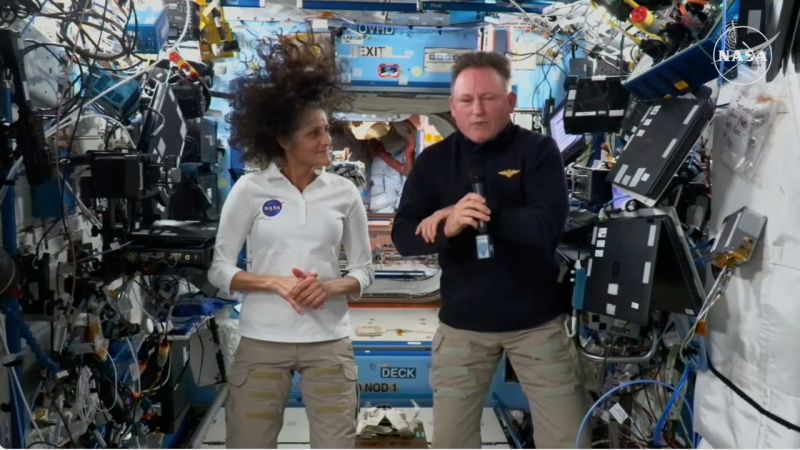NASA’s astronaut duo, Suni Williams and Butch Wilmore, have recently taken to the media to clarify their position regarding their extended stay aboard the International Space Station (ISS). Following their participation in Boeing Starliner’s inaugural crewed test flight in June, the astronauts have found themselves at the center of political speculation. During an interview with CNN’s Anderson Cooper, the astronauts emphasized that they do not feel stranded or abandoned in space, despite comments from public figures like former President Donald Trump and SpaceX CEO Elon Musk.
The confusion and the rhetoric surrounding their mission have been pervasive. In the CNN discussion, Wilmore pointed out this narrative of being “stranded, abandoned, or stuck,” which he considers misrepresentative of their experience. He articulated that both he and Williams have a profound understanding of human spaceflight’s inherent risks and responsibilities, saying, “We don’t feel abandoned, we don’t feel stuck, we don’t feel stranded.” Their request to the public and the media was clear: shift the narrative to one that emphasizes being “prepared and committed” rather than distressed.
From the onset of their journey, Williams and Wilmore have been equipped to deal with any unexpected circumstances stemming from the test nature of the Starliner mission. Williams reiterated this notion by reaffirming her awareness of potential issues with the spacecraft and clarifying that they were ready for various contingencies. Their extended stay has not come as a surprise, with Williams reflecting, “We knew that we would probably find some things (wrong with Starliner) and we found some stuff, and so that was not a surprise.”
The astronauts’ firm stance comes in response to comments made earlier by high-profile figures such as Musk and Trump. Musk, earlier in the year, alleged that the Biden Administration had left the astronauts “stranded,” while Trump echoed the sentiment on his Truth Social platform, describing the situation as one of “virtually abandoned” astronauts. However, NASA had already initiated plans to manage the astronauts’ return well before these declarations, having requested SpaceX’s assistance for their safe return under the Crew-9 mission.
NASA’s timeline has undergone some adjustments, which contributed to the astronauts’ extended presence on the ISS. A delay in their return was announced in December due to the need for further preparation of a new SpaceX vehicle. However, more recently, NASA announced that options to expedite their return were under consideration, leading to speculation over recent political narratives surrounding their situation. This comes on the heels of NASA’s plans to send a new crew to the ISS as part of the Crew-10 mission, which includes astronauts from NASA and the Japan Aerospace Exploration Agency.
It’s noteworthy that NASA operates with its own stringent schedule, independent of political interferences. Typically, the complexities of sending personnel to and from the ISS involve meticulous coordination between NASA and Roscosmos, the Russian space agency. Furthermore, the astronauts’ ongoing stay has resulted in their withdrawal from their original mission scope, as they have integrated into the space station’s regular operations, a role that necessitates their expertise and commitment beyond initial timelines.
Ultimately, Williams and Wilmore are set to come back home on SpaceX’s Crew-9 capsule. Their initial anticipated return was delayed, but due to NASA’s recent adjustments to mission schedules, they might return home sooner than initially planned. These developments serve to highlight the ongoing complexities surrounding human spaceflight and reaffirm the commitment that astronauts like Williams and Wilmore have for their delicate and vital work aboard the ISS.



